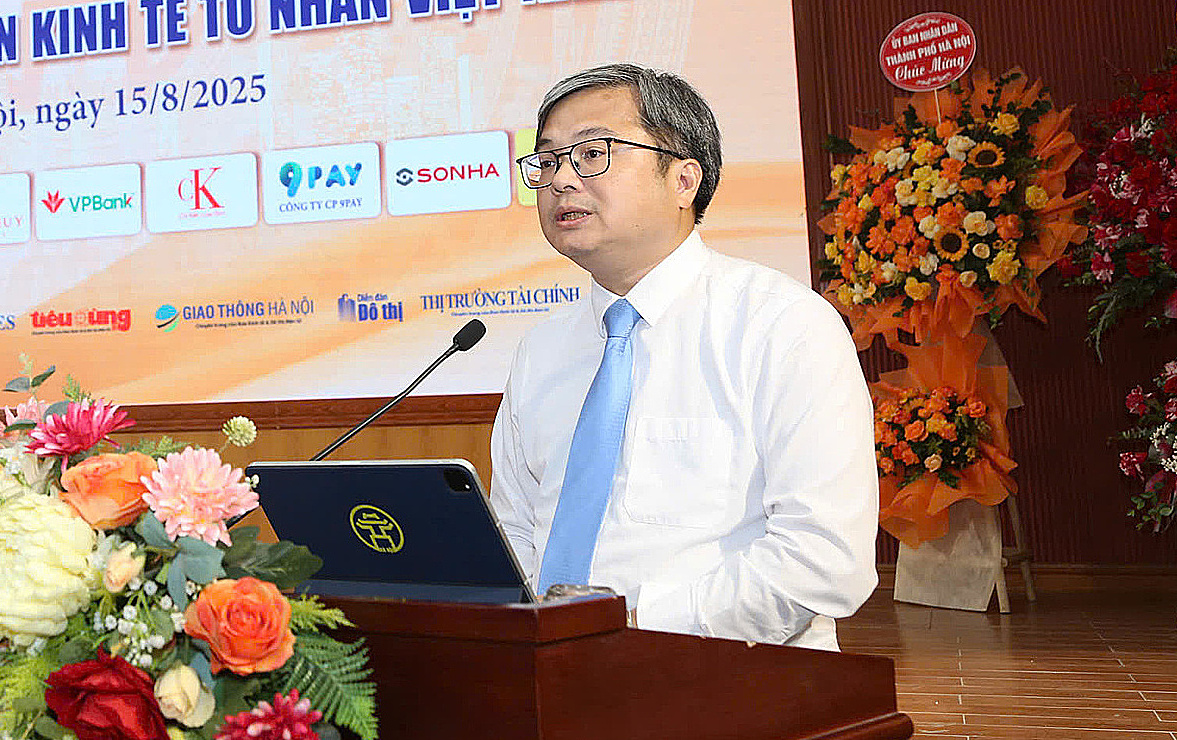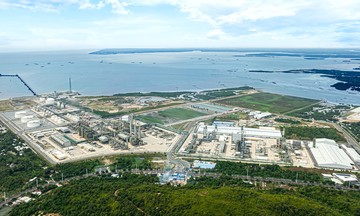The Politburo issued Resolution 68 in May, affirming the private sector as a crucial driver of the economy and a pioneer in science, technology development, and innovation.
At the "Resolution 68 - Driving force for Vietnam's private economic development" seminar on 15/8, Hanoi People's Committee Vice Chairman Truong Viet Dung stated that Hanoi aims to have about 230,000 active businesses by the end of 2025. This figure equates to a ratio of 27 businesses per 1,000 residents.
Along with this, the private sector is expected to contribute 50-55% to the city's gross regional domestic product (GRDP). According to the scenario and targets assigned by the Prime Minister, the 2025 GRDP is estimated to reach about 63.5 billion USD (an 8.5% increase). Thus, the private sector's contribution is estimated at around 31.8-35 billion USD, creating jobs for 55-60% of the workforce.
 |
Hanoi People's Committee Vice Chairman Truong Viet Dung speaks at the seminar on 15/8. Photo: Pham Hung |
Hanoi People's Committee Vice Chairman Truong Viet Dung speaks at the seminar on 15/8. Photo: Pham Hung
Mr. Dung shared that clear evidence of the private sector's dynamism is readily apparent in the capital. He cited the Bat Trang ceramics village, where young artisans combine traditional craftsmanship with 3D printing technology to create sophisticated products exported to the European market.
At the Hoa Lac High-Tech Park, engineers are researching and developing artificial intelligence solutions for public health, gradually conquering the international market. In other industrial parks, clusters, and high-tech zones across the city, numerous private businesses are expanding production, applying modern technology, improving product quality, and participating in global value chains.
"All of this creates a picture of the resilience of the business community, from small and medium-sized enterprises to large corporations. They are the 'lifeblood' nurturing Hanoi's new economic identity," Mr. Dung said.
According to city leadership, following the issuance of Resolution 68, the city has implemented a series of solutions to support the business community, such as streamlining administrative procedures, supplementing and completing planning, and ensuring transparency in calling for investment in socio-economic development, infrastructure, and energy projects.
"Hanoi is determined to reform and innovate so that the private sector can make breakthroughs and truly be a key driving force," he said, affirming the city's commitment to working alongside the business community and entrepreneurs with a spirit of readiness to build and serve the common good.
In the first 7 months of 2025, Hanoi saw the establishment of over 18,000 new businesses with a total registered capital of over 180,000 billion Vietnamese dong. The household business sector has also accelerated rapidly; the number of households transitioning to businesses has tripled or quadrupled compared to previous periods, and is expected to reach approximately 10,000 households for the entire year.
Phuong Dung












